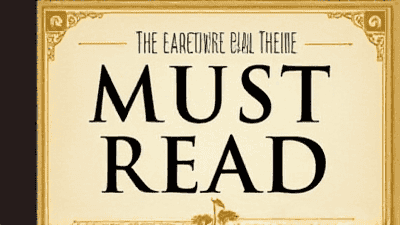
Music has been an integral part of human culture for millennia, serving various purposes from entertainment to spiritual expression. However, over the years, researchers and practitioners have increasingly recognized the powerful impact that music can have on mental health and wellness. Whether it is through listening, performing, or creating music, individuals can harness its therapeutic qualities to improve their emotional well-being.
Understanding the Connection Between Music and Mental Health
Emotional Resonance
One of the primary reasons music affects mental health is its ability to evoke a wide range of emotions. From joy and excitement to sadness and nostalgia, music taps into the core of human emotion. Studies have shown that listening to specific types of music can influence mood, providing individuals an avenue to express, process, or transform their feelings.
The emotional resonance of music may stem from its structured patterns, harmonies, and melodies, which often parallel the emotional cycles humans experience. For instance, a slow, mournful piece might evoke feelings of sorrow, whereas an upbeat tempo can inspire joy. This emotional link is crucial in understanding how music can serve as a tool for self-awareness and emotional regulation.
The Neurobiological Basis
Scientific research highlights that music has a notable impact on brain function, which plays a critical role in mental health. When we listen to music, our brains release neurochemicals, including dopamine, which is associated with pleasure, reward, and motivation. This release not only elevates mood but can also alleviate symptoms of anxiety and depression.
Moreover, music engages various areas of the brain, including those responsible for emotional processing, motor functions, and even memory. This neurological engagement is one reason why music therapy has gained acceptance in the treatment of various psychological disorders, including PTSD, anxiety disorder, and depression.
The Benefits of Music for Mental Health

Stress Reduction
Music serves as an effective tool for stress reduction. Listening to calming music can help lower cortisol levels, the hormone correlated with stress. Various studies indicate that even a short period of listening to soothing tunes can lead to significant reductions in stress levels.
Many people turn to music during stressful times to help ground themselves in the present moment. The soothing qualities of slow, melodic music can provide a sense of security, enabling individuals to let go of their anxieties and enjoy a moment of calm.
Enhanced Mood
Mood enhancement is one of the most commonly cited benefits of music. Many individuals use music as a means to uplift their spirits or facilitate self-reflection. Upbeat genres, like pop or dance music, can trigger feelings of happiness and motivate individuals to engage in physical activity, which is another proven way to boost mood.
Furthermore, engaging with music through dancing, singing, or playing an instrument can create a profound sense of joy and accomplishment. These activities not only lift the spirit but can also foster social connections, further contributing to an enhanced emotional state.
Coping Mechanism
Music serves as a powerful coping mechanism for individuals dealing with emotional challenges. During difficult times, people often turn to lyrics that reflect their pain or struggles, creating a sense of validation. The experience of identifying with a song can foster feelings of connection and understanding, making individuals feel less isolated in their suffering.
In addition to providing validation, music can also serve as a distraction. Many individuals find that listening to upbeat or engaging music can momentarily take their minds off stressors, allowing them a necessary break from their problems.
Improved Sleep Quality
Quality sleep is paramount for mental health, and music has been shown to enhance sleep quality. Studies indicate that listening to calming music before bedtime can significantly improve sleep onset, duration, and overall quality.
The relaxation induced by slow, melodic music can create an ideal atmosphere for falling asleep. It can also reduce symptoms of insomnia and anxiety, providing a natural solution for individuals struggling with sleep-related issues.
Enhanced Cognitive Performance
Listening to music can improve cognitive tasks and overall brain function. Studies have shown that background music, particularly instrumental or classical pieces, can enhance focus and concentration. This phenomenon, often referred to as the “Mozart effect,” suggests that certain types of music can promote better performance on tasks that require significant mental effort.
Many students and professionals use music to enhance their productivity. A well-curated playlist can provide an engaging auditory backdrop, allowing individuals to concentrate on tasks at hand while maintaining their motivation.
Social Connection
Music can serve as a pivotal social connector. From attending concerts to participating in choir groups or simply enjoying a jam session with friends, music creates shared experiences that foster social connections.
These social interactions are crucial for mental health, as feelings of connection and belonging can significantly improve emotional well-being. In groups, music can promote a sense of identity and community, helping individuals combat feelings of loneliness or isolation.
Music Therapy: A Structured Approach to Healing
While the benefits of music are accessible through casual listening, music therapy offers a structured approach to harnessing its therapeutic effects. Credentialed music therapists use music as a tool to address clients' physical, emotional, cognitive, and social needs.
Types of Music Therapy
There are various approaches to music therapy, including:
Active Music Therapy: This approach involves engaging clients in musical activities, such as playing instruments or creating songs. These activities help clients express themselves, learn new skills, and foster social interaction.
Receptive Music Therapy: In this approach, clients listen to music selected by the therapist. The music serves as a platform for discussion, reflection, and processing emotions. It’s particularly effective for individuals who may struggle to articulate their feelings verbally.
Guided Imagery and Music (GIM): This therapeutic practice combines relaxation techniques with music. Patients listen to specific music while guided by a therapist to visualize images or memories that arise. This technique helps individuals explore their emotions and experiences in a safe environment.
Goals of Music Therapy
Music therapy can be employed to address a wide range of mental health issues, including:
Reducing Anxiety and Depression: Music therapy can help diminish symptoms of anxiety and depression through emotional expression and coping strategies.
Improving Communication and Social Skills: Particularly beneficial for individuals on the autism spectrum, music therapy can enhance social interactions and communication skills.
Rehabilitation: For individuals recovering from trauma or neurological issues, music therapy can aid in physical rehabilitation and emotional healing.
Music in Clinical Settings

The implementation of music therapy in clinical settings—such as hospitals, rehabilitation centers, and mental health clinics—has highlighted the effectiveness of music as a healing tool.
Hospitals and Palliative Care
Music therapy has shown promise in hospital settings, particularly for patients dealing with chronic illness, pain management, or end-of-life care. It serves to reduce anxiety and provide emotional support during challenging times.
Patients often experience less pain and greater comfort when engaged in therapeutic music interventions. Music therapists work closely with patients to create personalized soundscapes, allowing individuals to navigate their experiences.
Mental Health Facilities
In mental health facilities, music therapy has been integrated into overall treatment plans. By creating safe spaces for self-expression and emotional exploration, music therapy can help patients feel empowered in their healing journey.
Structured group sessions have been particularly effective in fostering connection and validating shared experiences among patients facing similar challenges.
Personal Experiences: Music's Impact on Individual Lives
While scientific evidence and clinical studies offer valuable insights into music's role in mental health, personal anecdotes provide a rich tapestry of its impact on individual lives.
Testimonials and Stories
Many individuals share transformative stories of how music has aided their mental health. For some, music served as a lifeline during times of distress, providing solace during difficult moments. Others recount using music as a means of self-expression, allowing them to channel their emotions and convey messages they found challenging to articulate.
Musicians, in particular, share experiences where songwriting or performing became a form of therapy. The act of creating music often allows artists to explore their inner struggles and connect authentically with listeners.
The Role of Music in Daily Life
For many people, music is woven into the fabric of their daily lives. From creating morning playlists to energize their day to unwinding with soft lullabies before bed, music has the unique ability to influence and shape daily experiences.
Even routine activities become enriched with music; whether cooking, working out, or commuting, the right soundtrack can make all the difference in personal well-being. Listening habits reflect individual preferences and coping styles, showcasing music's versatility as a healing tool.
Beyond Traditional Genres: Exploring Eclectic Music for Mental Health

While certain genres may be more widely associated with mental well-being—such as classical or ambient music—it's essential to embrace the diversity of music. Eclectic music selections can provide unique benefits and cater to individual tastes.
World Music
World music, encompassing genres from various cultures, can evoke powerful emotional responses. Its diversity fosters connection and understanding, offering listeners a new perspective in their healing journey.
Genre Blending
The fusion of genres—such as lo-fi hip-hop or jazz-infused beats—provides a rich auditory landscape. These blends can stimulate creativity and promote relaxation, inviting listeners to explore their emotional depths.
Personalized Playlists
Creating personalized playlists tailored to individual moods and experiences can be an effective way to harness music's power. By selecting songs that resonate with specific emotions or situations, individuals can curate a unique auditory journey that supports their mental health.
Future Directions: Research and Integration
As awareness of music's impact on mental health continues to grow, further research studies are essential for understanding its biological, psychological, and social mechanisms. Exploring music's role in various populations can also provide individualized insight into its effectiveness in promoting mental well-being.
Innovations in Music Therapy
The future of music therapy includes the integration of technology, such as virtual reality and music software. These innovations can lead to more interactive and engaging therapeutic experiences, making music therapy accessible to a broader audience.
Cultivating Public Interest
Raising awareness about the benefits of music in mental health requires advocacy and education. Public campaigns showcasing the significance of music therapy can help dispel misconceptions and emphasize its value in promoting overall wellness.
Community Initiatives
Community initiatives that provide access to music therapy and musical engagement can create supportive environments. Local programs and workshops can foster connections and facilitate understanding about mental health, merging music with social interaction.
Conclusion
Music is more than mere entertainment; it holds the potential to transform lives and improve mental health. Through emotional resonance, stress reduction, enhanced mood, and social connection, music can profoundly influence emotional well-being.
Whether through casual listening or structured music therapy, individuals can harness the therapeutic qualities of music to promote healing and coping. As society continues to explore the intersection of music and mental health, the possibilities for utilizing music as a healing tool appear limitless. In embracing music's transformative power, we can navigate our emotional landscapes and foster resilience in a world filled with challenges and uncertainties.








